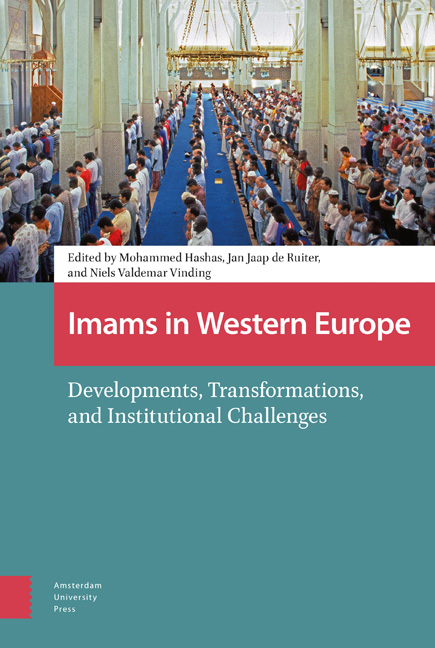8 - The Reinvented Role of Imams in French Society
Published online by Cambridge University Press: 06 January 2021
Summary
Abstract
Based on the findings of a research project that combined ethnographic and socio-historic approaches, this chapter investigates how imams in France progressively established themselves as one of the main embodiments of Islamic authority under the dual impetus of Muslim communities and state authorities, particularly at the local level. Retracing the sociohistorical stages of the reinvention of their role(s), it shows both how French imams have emerged as a distinctive type of ‘organic intellectuals of migration’ in their places of worship, and how they became the objects of public policies in laique (‘secular’) French society.
Keywords: (history of) Imams in France, laicite, immigration, state policy
Imams in France
This chapter is based on the findings of a doctoral study I conducted in France (Jouanneau, 2009a), in which I investigated how imams have progressively established themselves as one of the main embodiments of Islamic authority under the dual impetus of Muslim communities and state authorities – particularly at the local level. Imams, who lead the main rites of the daily prayers and the Friday congregational prayers in French mosques, interact with a wide range of actors: the faithful, leaders of Muslim associations, consulates of their countries of origin, local politicians, and agents of the central French authorities.
In my doctoral research, I explored why imams play a much more central role in France than they do in countries where Islam is both the state and majority religion (Frégosi, 2004, p. 137). This required retracing the socio-historical stages of their changing role(s) to identify the processes that have allowed imams to emerge as a distinct type of ‘organic intellectuals of migration’ in French places of worship. It also sheds light on the influence of civil servants in redefining the imamate in France. Indeed, civil servants have gradually made imams the objects of public policies, as they saw them as an ‘immigrant clergy’ that could have some authority over immigrants and their descendants.
I used a range of methods combining ethnographic and socio-historic approaches to conduct this research over a six-year period. In the early years, I carried out fieldwork in several Muslim prayer rooms in Eastern and Southern France to collect accounts of the life stories and practices of around 30 imams.
- Type
- Chapter
- Information
- Imams in Western EuropeDevelopments, Transformations, and Institutional Challenges, pp. 143 - 164Publisher: Amsterdam University PressPrint publication year: 2018



